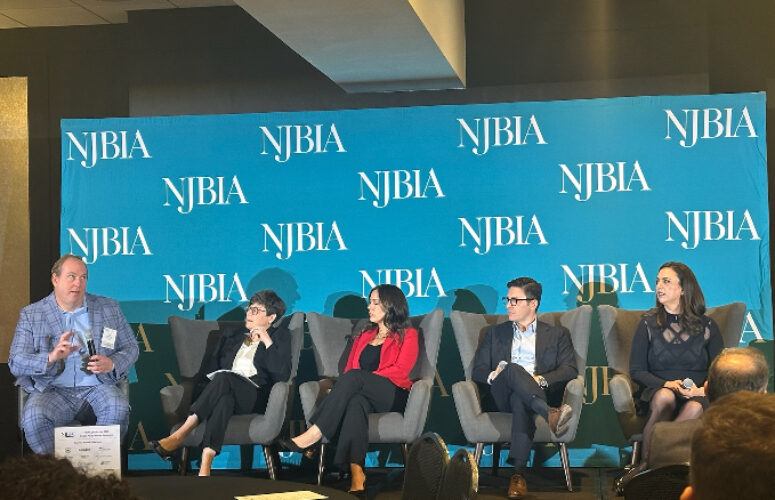[ad_1]

Government
By Jim Pytell, Managing Editor On Dec 5, 2024
Yesterday at the New Jersey Business & Industry Association’s annual Public Policy Forum held at the APA Hotel Woodbridge, several political pundits shared their thoughts on the fallout from the 2024 presidential election, while also looking ahead to New Jersey’s gubernatorial election in 2025.
In terms of the presidential election results, while Vice President Kamala Harris won New Jersey in 2024, Donald Trump was able to close the gap for Republicans, capturing 45.9% of the vote compared to Harris’ 51.8%. In 2020, President Joe Biden won New Jersey with 57% of the vote to Trump’s 41%.
Notably, four counties saw a voting turnout drop of 10% or more, including Burlington, Essex, Atlantic and Cumberland counties, though this is likely due to fewer mail-in ballots used in 2024.
When exploring why the election shook out the way it did, Briana Vannozzi, anchor, NJ Spotlight News, believes that a growing distrust in elected officials could have played a tangible role.
“In going around and talking to voters, particularly young voters on college campuses, we found there was a lot of anger behind some of the voting,” said Vannozzi. “Voters do not trust their elected officials. The number one question I get asked from folks is: ‘Where does all the money go?’ They don’t believe that their elected officials have their best interests in mind. I think [this lack of trust] is right there with affordability and polarization as a top issue driving voters.”
Daniel Bryan, president of Bryan Strategies Group, added that for him, sometimes the simplest answer is the correct one.
“We had a deeply unpopular incumbent president in Joe Biden, and [Kamala Harris] failed to separate herself from him. I think there were opportunities for her to distinguish herself from the president, but she chose not to, whether it was from loyalty or something else,” Bryan said.
Looking ahead to 2025, Alexandra Wilkes, attorney and Republican strategist, said that she believes the Republicans in New Jersey need to expand their messaging beyond just affordability and the general economy if they want to find success in 2025.
“They can’t run the same property tax campaign every single year,” she said. “While Republicans have often made the case for addressing affordability, it hasn’t been enough to advance them across the finish line. Republicans need to understand that people stay in New Jersey for various non-economic reasons such as staying close to family or for the state’s school systems. They need to speak to those people about the other issues that animate them. I think Donald Trump did that well this year when he spoke about immigration and taking away opportunities for girls in sports, for example. These were issues where Republicans were able to make great advances with people who weren’t necessarily even political.”
In terms of the Democrats’ strategy moving forward in the state, Ginger Gold Schnitzer, director of education and strategic initiatives, Eagleton Institute of Politics at Rutgers University, said that it will be interesting to watch the dynamic between how the Democrats in the Legislature will campaign, and how reflective will that be on how they govern between now and the 2025 election.
“I don’t know that these things are necessarily mutually exclusive,” said Schnitzer. “You can still battle Donald Trump, and you can still do things to help with affordability. There are a lot of issues to choose from.”
For example, she said that Democrats may choose to enact protections for various social issues or look at regulatory issues that don’t necessarily cost a lot of money.
“With the size of the budget last year, Democrats will be very conscious of what spending looks like between now and the election,” she said.
Bryan said he’d like to see the state take big swings at its affordability issue, citing things such as cutting in-state tuition in half at Rutgers, building more affordable housing, and improving daycare and senior care.
“Take big swings so that middle-class families can look at their income and say, ‘Wow this is a great income.’ That doesn’t happen in this state,” he said. “It is so difficult to raise a family in New Jersey. [Our officials] need to talk to young working families about what specifically they are going to do to make their lives better and more affordable.”
To access more business news, visit NJB News Now.
Related Articles:
[ad_2]
Source link












